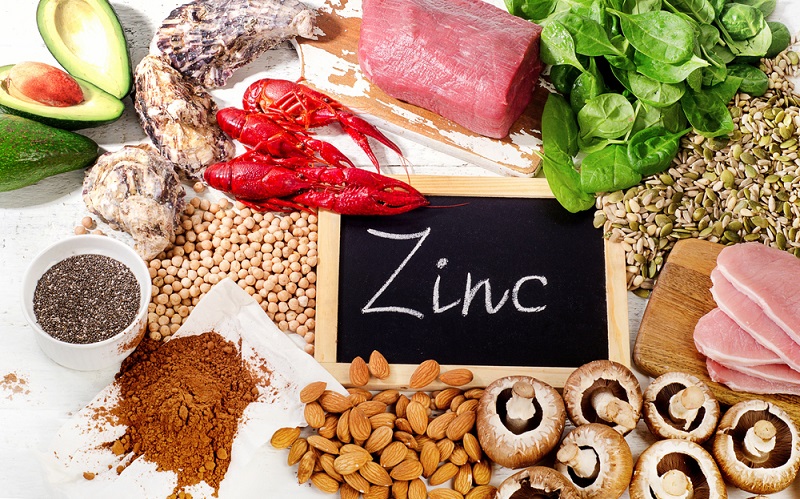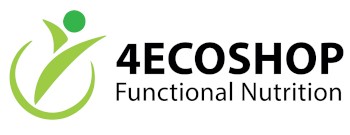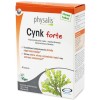
Each season brings new challenges for our immune system, and stress, fatigue and nutritional deficiencies are commonplace, more and more people are beginning to appreciate the role of microelements. And one of the most underestimated, yet important elements is zinc. It is not as popular as magnesium, it is not as clearly associated with immunity as vitamin C. Check more about what is zinc good for.
What is zinc? What does zinc do and why is it so important?
Zinc is involved in the production of T lymphocytes, cells responsible for recognizing and destroying microorganisms. They “learn” to recognize viruses, bacteria, and even cancer cells. People with low zinc levels have a significantly weakened immune system and are more likely to suffer from infections. It is not without reason that in the fall and winter, there is a growing interest in products that combine zinc with vitamin C.
Check what does Vitamin C do exactly.
Zinc is also the foundation of healthy skin. It is involved in the synthesis of collagen, has anti-inflammatory effects and accelerates wound healing. People with acne, psoriasis or atopic dermatitis often have reduced levels of this element. Supplementation can bring real benefits – but only if we reach for a well-absorbed form, e.g. zinc picolinate
Hormones and fertility
In men, zinc affects testosterone levels, sperm quality and libido. In women, it regulates estrogen levels and supports thyroid function. This element is particularly important for people trying to conceive. For men, a good choice may be a supplement with magnesium, which supports both regeneration and hormonal balance.
Brain and concentration
Zinc supports the nervous system, affects cognitive abilities and mood. Deficiencies can result in irritability, problems with concentration and even depression. Interestingly, children with ADHD and autism often have lower zinc levels – and supplementation can be helpful.
Symptoms of zinc deficiency
Do you know that feeling when you have trouble healing minor wounds, brittle nails, hair loss and frequent colds? These may be classic symptoms of zinc deficiency. The most common symptoms include:
· weakened immunity, recurrent infections,
· acne, dry skin, wounds that are difficult to heal,
· hair loss, brittle nails,
· deterioration of taste and appetite,
· feeling of fatigue and problems with concentration.
How much zinc per day for a man and for a woman?
The amount of zinc intake depends mainly on age and gender. An additional aspect is the state of pregnancy and breastfeeding. How much zinc per day? The average dose is 11 mg per day for men, 8 mg per day for women. Please bear in mind that too much zinc can be harmful. And how much zinc is too much? Chronic zinc overdose can occur when you ingest anywhere from 150 to 450 milligrams.
People on a vegan or vegetarian diet, seniors, pregnant women, athletes and people under a lot of stress are particularly susceptible to deficiencies.
What form of zinc to choose? Pills, liquid, complexes
Liquid zinc – for children and people with stomach problems
For many people, supplementation in tablets is unnecessary stress – especially if they have problems swallowing capsules or absorbing active substances. An alternative is Kiki Health Liquid Zinc – easy to administer, very digestible and without unnecessary additives. An ideal choice for children and seniors.
Complex supplements – zinc + vitamin C
If you care about your immunity, look for combinations with vitamin C, e.g. Vitamin C + Zinc KFD. This option is valued for its simple composition and effectiveness – many users notice improved immunity after just one month of use.
“Forte” products – increased dose for the demanding
Some situations – e.g. convalescence, intense stress, pregnancy – require higher doses. In such cases, it is worth reaching for Cynk Forte Physalis, which contains as much as 15 mg of zinc in one tablet.
Zinc in the daily diet – what foods have zinc?
Although supplements are an effective way to supplement deficiencies, let's not forget about the diet. Good sources of zinc are:
· meat (especially beef, liver),
· seafood (oysters, shrimp),
· eggs,
· pumpkin seeds, sunflower seeds,
· nuts, legumes,
· groats (buckwheat, millet), bran.
It is worth remembering that phytates present in cereal products can hinder the absorption of zinc – therefore people on a plant-based diet should take special care of proper supplementation.
When is it worth supplementing zinc?
· Fall and winter – infectious season.
· Pregnancy and lactation – increased demand (necessarily after consulting a doctor).
· Meatless and plant-based diet.
· Periods of stress, fatigue, convalescence.
· Skin problems, baldness, acne.
· Supporting fertility and libido.
Proven zinc supplements worth having at hand
You will find hundreds of zinc supplements on the market – but not every product is a bull's eye. The form, composition, absorbability and reputation of the manufacturer matter. Below you will find a set of proven suggestions that you can conveniently implement into your supplementation – regardless of whether you want to take care of your immunity, skin, concentration or regeneration after training.
1. Zinc Forte – Physalis
A solid choice for people who need a basic but well-absorbed dose of zinc – 15 mg in one tablet. A great option for starters, especially for adults who want to supplement their diet with zinc without reaching for complex supplements.
2. Vitamin C + Zinc – KFD
Two key immunity components enclosed in one capsule. An excellent choice for the autumn-winter season, for people working intensively or having contact with a large number of people.
3. Liquid zinc – Kiki Health
For people who don't like pills – or simply want faster and more convenient absorption. An ideal choice for children, seniors, and people with digestive problems.
4. Vitamin C 1000 + Zinc + Immunity – NOW Foods
A set for the demanding – a high dose of vitamin C and zinc enclosed in vegan capsules. The product is recommended for people exposed to stress, fatigue or with reduced immunity.
5. Zinc and Magnesium – Reflex Nutrition
A duo ideal for physically active people, athletes, but also those who have problems with sleep and regeneration. Zinc supports the immune and hormonal systems, and magnesium is responsible for the proper functioning of muscles and the nervous system.
6. ZMB – magnesium, zinc, vitamin B6 – KFD
ZMB is a formula known in the world of fitness, but it works equally well for people looking for support in night-time regeneration. Vitamin B6 supports the absorption of zinc and magnesium and has a positive effect on the nervous system. Learn more about Vitamin B.
Zinc Picolinate is one of the most absorbable forms of this element. A vegan supplement, without unnecessary additives, ideal for people with high demand – e.g. acne, autoimmune diseases, convalescence or hormonal problems.
What is zinc good for? What does it do for the body? Summary
Zinc is an important trace element for immunity, skin, hair, hormones and concentration. Deficiencies are common but often overlooked – it is worth knowing their symptoms.
Good forms of supplements include picolinate, liquid extracts and complexes with vitamin C. Zinc supplementation should be conscious – matched to the lifestyle and needs of the body.



